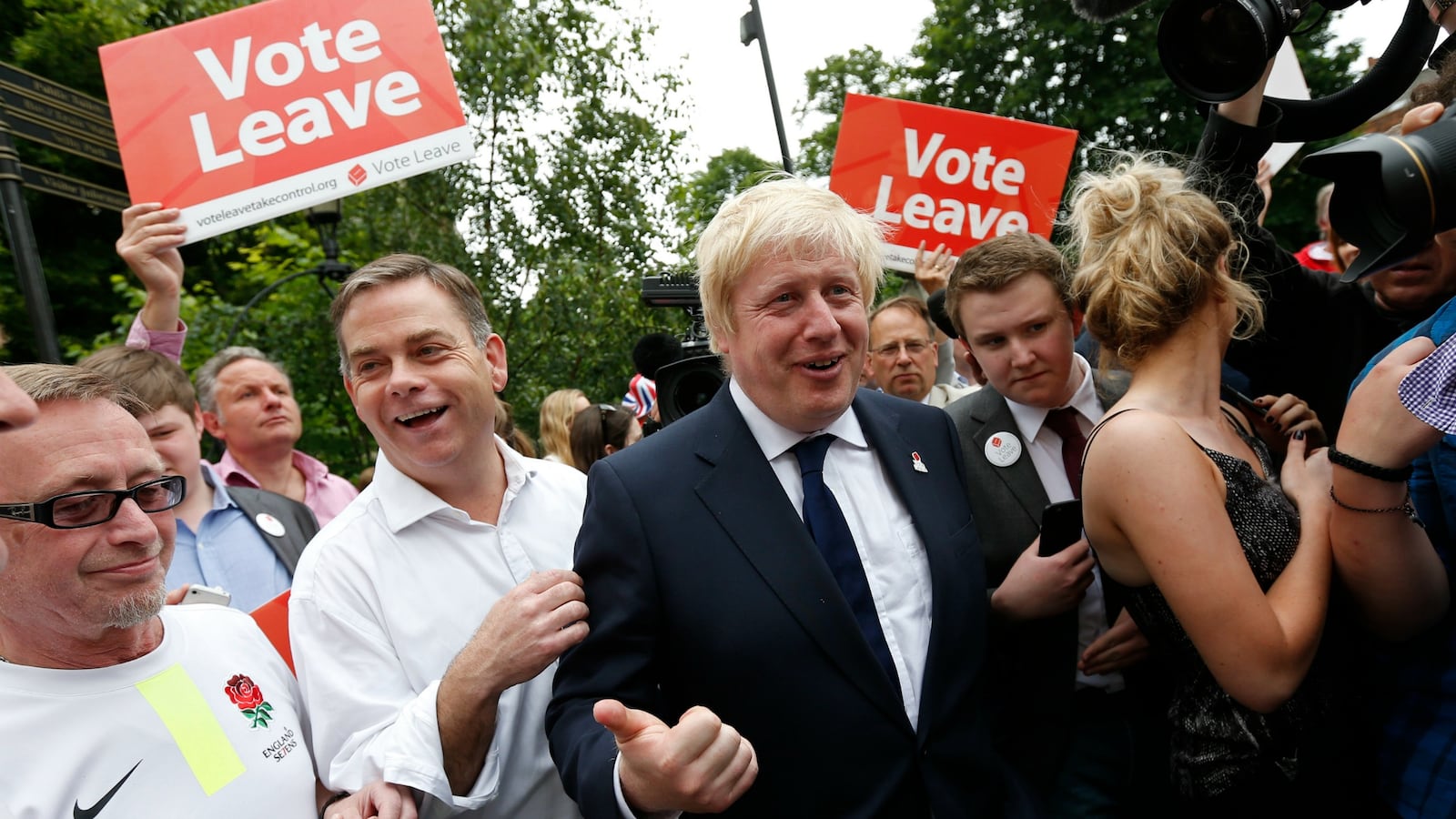The official campaign that campaigned for people in Britain to vote to leave the European Union broke the law, according to the country’s election watchdog, which has now referred the matter to police.
With Theresa May’s government teetering on the brink of collapse as the pro- and anti-EU factions within her party go to war, the announcement from the Electoral Commission that the campaign group fronted by Boris Johnson cheated is bringing Brexit tensions to boiling point, with some lawmakers urging a re-run of the vote.
The group—known as Vote Leave—was chosen as the official campaign group for the June 2016 referendum. The Electoral Commission says it funneled money into a sister campaign to get around spending limits, meaning that it exceeded the £7 million ($9.2 million) maximum by £500,000 ($660,000)
Vote Leave has been fined £61,000 ($80,000) while Darren Grimes, the founder of sister campaign group BeLeave, was fined £20,000 ($26,000). Grimes and Vote Leave official David Halsall have both been reported to police.
The investigation from the Electoral Commission found that BeLeave spent more than £675,000 with controversial data firm Aggregate IQ under a common plan with Vote Leave—spending that should have been declared by Vote Leave, but was left out of its spending returns.
Aggregate IQ, which received about £2.7 million from Vote Leave during the campaign, has since been suspended from Facebook over its reported links with defunct data firm Cambridge Analytica.
The Electoral Commission also criticized Vote Leave for failing to cooperate with its investigation, with director Bob Posner saying: “Vote Leave has resisted our investigation from the start, including contesting our right as the statutory regulator to open the investigation.
“It has refused to cooperate, refused our requests to put forward a representative for interview, and forced us to use our legal powers to compel it to provide evidence. Nevertheless, the evidence we have found is clear and substantial, and can now be seen in our report.”
Vote Leave reacted angrily to the findings, saying the investigation was “motivated by a political agenda” and based on “unfounded claims and conspiracy theories.” The group said it was considering its options but is confident the Electoral Commission’s findings will be overturned.
A Vote Leave spokesperson said: “The Electoral Commission’s report contains a number of false accusations and incorrect assertions that are wholly inaccurate and do not stand up to scrutiny.”
With Britain just nine months away from leaving the EU, pro-European lawmakers have reacted with fury to the findings—with some lawmakers saying it’s grounds to have a second referendum. Leave won the 2016 vote with just 51.9 percent of the vote to Remain’s 48.1 percent.
Conservative member of parliament and Winston Churchill's grandson, Nicholas Soames, said in parliament Tuesday: "One of the great glories of this sadly now diminished country was our electoral and democratic system. This example today is gross. And I say that if we are to retain the integrity and the trust of the voting public, the whole damn thing needs to be blown up and started all over again."
Labour MP David Lammy said: “This news makes the narrow referendum result look dodgier than ever. It’s validity is now in question. Politicians from all parties have a duty to ask: Do we want to continue with a policy that will wreck our economy and consume government for the next decade, based on this flimsy result?”
Fellow Labour MP Chuka Umunna said: “We know Vote Leave lied on a gargantuan scale—we now know they cheated too and it’s official. Did it affect the result? In a referendum where there was a 4 percent gap between Leave/Remain, they overspent by 10 percent. Go figure.”
As the referendum was not legally binding—the supreme court judged it to be advisory only—a re-run can’t be ordered by a court. Any decision to have a fresh referendum would have to be made by the government and backed by Parliament and there’s no suggestion that will happen.
Despite the findings, allegations of Russian involvement, and leaders of the campaigns admitting some of their claims were misleading—Britain still looks set to go through with its biggest political upheaval since the Second World War.






